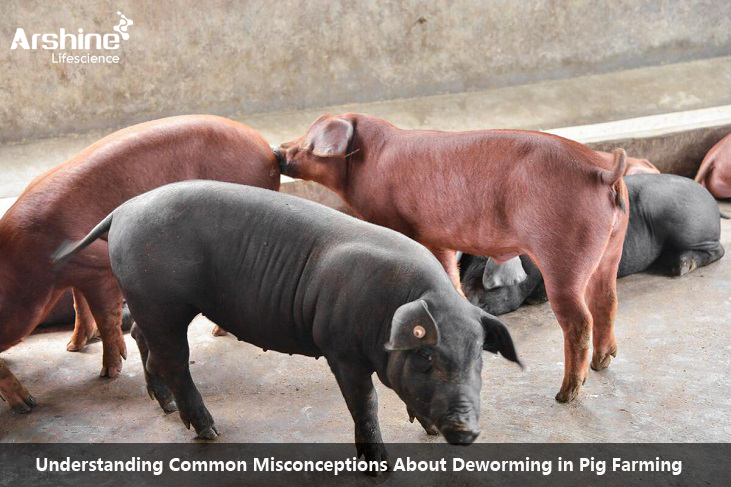

Parasitic diseases in pigs are chronic and debilitating, and the chances of pigs getting infected with parasites are very high. The harm caused by these infections is often hidden. While everyone understands the importance of deworming pigs, a common headache is that pigs continue to scratch even after deworming. Why is this happening? Is it possible that pig farmers have fallen into some deworming misconceptions? Let’s explore the common deworming misconceptions with the help of Pig Haoduo Network.
Believing Sows Don’t Need Deworming, Only Fattening Pigs Do
Sows are the main carriers and sources of parasites in pig farms. Piglets and fattening pigs often get infected with parasites from the sows. Deworming must be done uniformly across the entire farm to avoid cross-contamination and ensure thorough deworming.
Believing Ivermectin Is a Universal Dewormer
Ivermectin is a macrocyclic lactone antibiotic produced by the fermentation of Streptomyces avermitilis. It is very effective in killing internal and external parasites (nematodes and arthropods) in pigs but is ineffective against tapeworms and flukes. Farmers can use ivermectin in combination with albendazole to expel both internal and external parasites from pigs, achieving excellent deworming results.
Believing a Single High Dose of Dewormer Is Better Than Multiple Small Doses
Currently, broad-spectrum, high-efficiency, and safe dewormers are often more effective when added in multiple small doses rather than a single high dose. Using a high dose can easily cause issues like abortion in sows or other adverse reactions.
Believing Deworming Should Only Be Done When Pigs Pass Worms or Show Skin Lesions Due to Mites
If these symptoms appear, it means the pigs are already severely infected, seriously affecting sow reproductive performance and the growth rate of fattening pigs. Such farms often overlook the harm of mild to moderate parasite infections. These infections usually show no obvious signs until they become severe, leading to significant economic losses over time.
Not Cleaning and Disinfecting After Deworming
Some pig farms do not clean or disinfect after deworming, causing expelled worms and eggs to be ingested by pigs again, leading to reinfection. The correct method is to promptly clean up feces after deworming, disinfect, pile and ferment, or incinerate. The floors, walls, and troughs of the pigpens should also be disinfected.
Believing Deworming Must Result in Seeing Worms
Many parasites in the pig’s intestines are very small and almost invisible to the naked eye even when expelled. Some high-quality dewormers cause the dead parasites to decompose or be digested and absorbed by the intestines, or be expelled without being seen.
Believing Oral Dewormers Are Ineffective for External Parasites
This is related to the fact that the capillaries at the parasite’s site of residence are not abundant. Limited capillaries mean less drug concentration, insufficient to kill the parasites completely. The parasites may be “paralyzed” and leave the body surface only to revive after some time, leading to reinfection.
Add: Block 14, No.100, Luyun Road, Changsha 410205, Hunan, China.
Email: info@arshinevet.com
WeChat: +8618874001228
WhatsApp: +8615697311407
Tel:86-731-82294958